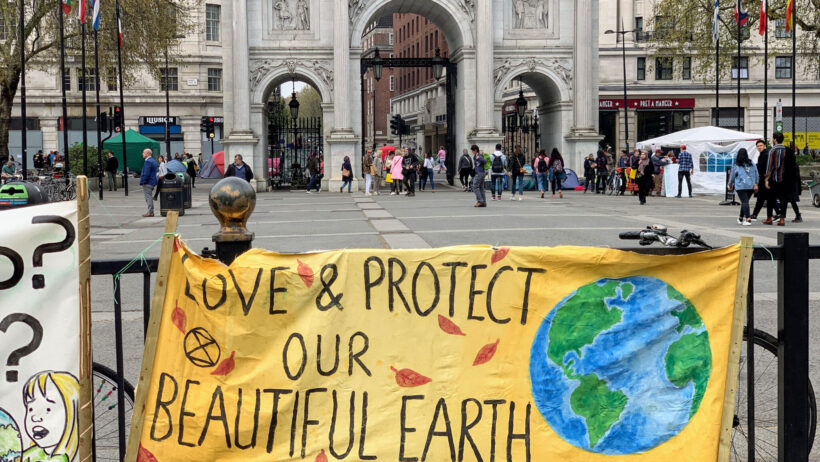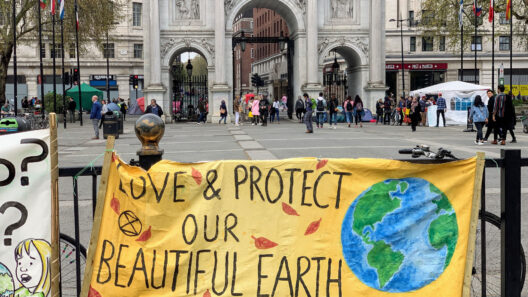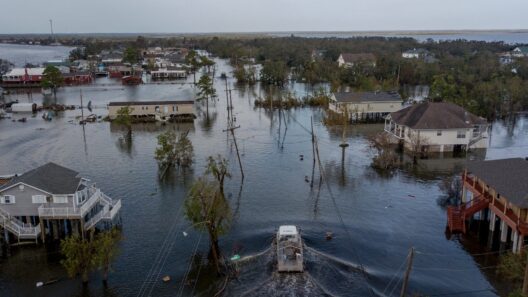Climate change is not merely a discussion point; it is an imminent reality that demands our immediate attention and unparalleled action. The effects of this environmental crisis are seeping into various aspects of human civilization, raising the question of how we can significantly alter our course. While the complexities of climate change may seem overwhelming, there exists a plethora of actions individuals, communities, and nations can undertake to mitigate its effects and seek a sustainable future.
To truly combat climate change, a multipronged approach is essential. Emphasizing the importance of systemic change alongside personal responsibility enriches our understanding of this global endeavor. Let us explore various pathways to initiate transformative changes that can lead to a more sustainable world.
Embracing Renewable Energy: The Future of Power
The shift from fossil fuels to renewable energy sources is paramount in reducing greenhouse gas emissions. Solar, wind, hydro, and geothermal energy provide a sustainable alternative that can power our lives while minimizing environmental impact.
Solar energy, harnessed from the sun’s rays, has become increasingly accessible. Innovations have dramatically reduced costs, making solar panels an attractive option for homeowners and businesses alike. Moreover, solar farms can be established in remote areas, producing electricity without encroaching on valuable land.
Wind power, too, is gaining momentum. Turbines, strategically placed in open fields and offshore locations, exploit natural wind patterns to generate large amounts of clean energy. The aesthetic appeal of these towering structures contrasts sharply with their functional purpose—they symbolize hope, progress, and resilience against climate adversities.
Advocating for government policies that incentivize renewable energy adoption is essential. Incentives such as tax credits, grants, and subsidies can accelerate the transition, fostering a green economy that values sustainability over profits.
Implementing Sustainable Practices in Daily Life
Another compelling avenue lies within personal accountability and the collective shifts in behavior. Simple changes in daily life can significantly contribute to reducing emissions and conserving resources.
Adopting a plant-based diet is one such shift. The livestock industry is a substantial contributor to greenhouse gas emissions, with meat and dairy production requiring vast amounts of land, water, and energy. By incorporating more fruits, vegetables, and plant-based proteins into our diets, we not only improve our health but also alleviate the strain on the Earth’s resources.
Mindful consumption and waste reduction extend beyond dietary choices. Emphasizing the 3 R’s—Reduce, Reuse, Recycle—invites us to evaluate our purchasing habits. Opting for goods with minimal packaging, supporting local artisans, and repairing rather than discarding broken items fosters a culture of sustainability and creative resourcefulness.
Moreover, embracing a zero-waste lifestyle advocates for a comprehensive overhaul of our disposable society. With a thoughtful approach to consumption, the interplay between waste and resource becomes a narrative of renewal rather than one of linear depletion.
Advocating for Policy Change: The Role of Political Will
To tackle climate change effectively, grassroots movements must intersect with legislative advocacy. Engaging in democratic processes and demanding bold action from leaders can accelerate transformative policies at local, regional, and national levels.
Environmental justice is integral to this discourse. Often, marginalized communities bear the brunt of climate change, facing adverse effects due to systemic inequalities. Advocating for policies that ensure equitable resource distribution and accountability is not just a moral obligation; it is an imperative driven by the urgent need for collective resilience.
Moreover, joining or supporting political movements dedicated to climate action catalyzes a broader narrative within public consciousness. Grassroots organizations have the power to mobilize citizens, raising awareness through education and advocacy. Campaigns that promote climate literacy empower individuals to make informed choices and, ultimately, instigate change.
While challenging, it’s crucial to hold corporations accountable for their role in environmental degradation. Corporate lobbying often stifles necessary regulations. Mobilizing communities to demand transparency and sustainable practices from companies can drive a narrative shift towards corporate responsibility.
Global Collaboration: A Unified Response
Climate change knows no borders; hence, global collaboration is indispensable. International agreements, like the Paris Agreement, establish essential frameworks for nations to commit to emission reduction and sustainable practices.
Participating in and supporting such initiatives can galvanize broader action. Each country must articulate its unique goals while fostering an environment of cooperation and shared responsibility. Investments in climate adaptation and resilience strategies form part of a collective response that acknowledges both the urgency and interdependence of the climate crisis.
Furthermore, sharing knowledge and innovative technologies between nations enriches the global fight against climate change. Developed countries bear an ethical responsibility to support developing nations, ensuring that all have access to the resources necessary to combat climate change effectively.
Conclusion: Our Collective Journey Towards Sustainability
When addressing the pressing issue of climate change, there is no singular solution. It requires a tapestry woven with diverse strategies, interlinking personal responsibility with systemic and global initiatives. While the task may seem daunting, each action contributes to an overarching purpose. By committing to renewable energy, adopting sustainable personal practices, driving policy change, and fostering global collaboration, we can illuminate pathways towards a more sustainable, resilient future. In unity lies our strength; let us embrace it wholeheartedly.








